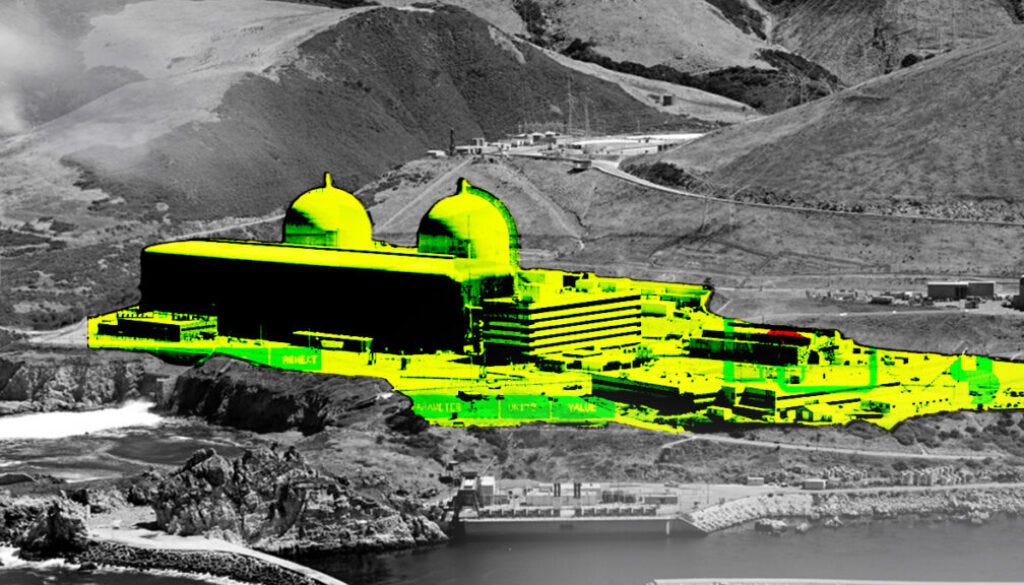Must-read recap: The New Lede's top stories
Bayer facing off against cancer patients in a long line-up of new trials; troubling research about glyphosate and the brain; and a discussion of the fate of California's last nuclear power plant.
Bayer facing long line-up of new Roundup trials as cancer takes toll
Cancer has taken an unrelenting toll on 72-year-old Mike Langford. After being diagnosed with non-Hodgkin lymphoma (NHL) in 2007 he suffered through five recurrences despite multiple rounds of chemotherapy and a stem cell transplant. Now he struggles with chemo-related neuropathy in his arms and legs, and new tests show the cancer is back.
Langford blames his cancer on his longtime use of the popular weed-killing product Roundup, which he applied countless times over decades using a backpack sprayer around his five-acre California property and a vacation lake home. He alleges in a lawsuit that Monsanto, the longtime Roundup maker now owned by the German company Bayer AG, should have warned of a cancer risk.
Last month, a San Francisco judge ruled that Langford’s health is so poor that he is entitled to a speedy hearing of his claims. A trial is set for Nov. 7 in San Francisco County Superior Court.
“I’ve had it so long. I’m very angry,” Langford said in an interview, a day after doctors biopsied an enlarged lymph node. “The future doesn’t look too terribly promising,” he said, trying to hold back tears. He learned last week that the preliminary biopsy results show a return of NHL.
Langford’s is just one of a long list of upcoming trials complicating Bayer’s efforts to escape the costly, ongoing litigation over the health effects of Roundup. As part of the sweeping, nationwide legal battle that has so far run seven years, approximately 140,000 plaintiffs have alleged they developed NHL from exposure to Roundup, and should have been warned of the risk.
One trial is underway now in Monsanto’s former hometown of St. Louis, Missouri, while another in Missouri is scheduled to start in October and yet another trial is set in Hawaii for November. Several others are on court calendars in Arizona, Arkansas, California, Florida and elsewhere well into 2023.
For plaintiffs lawyers, the new trials mark a renewed effort to either force Roundup off the market or ensure a cancer warning is added to the weedkiller’s label. For Bayer, they mark a chance to add to its current Roundup trial record of 4 wins and 3 losses.
This story is co-published with The Guardian.
New study says glyphosate may be linked to neurodegenerative diseases
Glyphosate, the world’s most widely used weed killer, can reach the brain and cause inflammation associated with neurodegenerative diseases such as Alzheimer’s and Parkinson’s disease, according to new research. These findings add to growing concerns that glyphosate and other pesticides are leaving a damaging impact on human health and the environment.
The results mark the first time scientists have identified glyphosate present in brain tissue, said Ramon Velazquez, an assistant professor studying neurodegenerative diseases at Arizona State University and a senior author of the study
Velazquez and a team of other scientists from Arizona State University, the City of Hope Comprehensive Cancer Center, and the Translational Genomics Research Institute published their work late last month in the Journal of Neuroinflammation.
Postcard from California: Close California’s last nuclear power plant
The last nuclear power plant in California, vulnerable to earthquakes and priced out of the energy market by cheaper renewables, is slated to close in three years.
But now both Gov. Gavin Newsom and the Biden administration, citing the specious notion that nuclear power is needed to help address the climate crisis, are poised to give the plant’s owner billions of taxpayer dollars to keep it open. It’s a really bad idea.
It was 1961 when Pacific Gas and Electric Company (PG&E) unveiled plans for the first US commercial-scale nuclear plant on the Pacific Coast north of San Francisco. PG&E settled on a new site 300 miles south, in the bucolic Diablo Canyon near the town of San Luis Obispo.
Decades of revelations about earthquake danger at Diablo Canyon have been punctuated with coverups, whistleblower scandals and reckless disregard by federal and state regulators.





